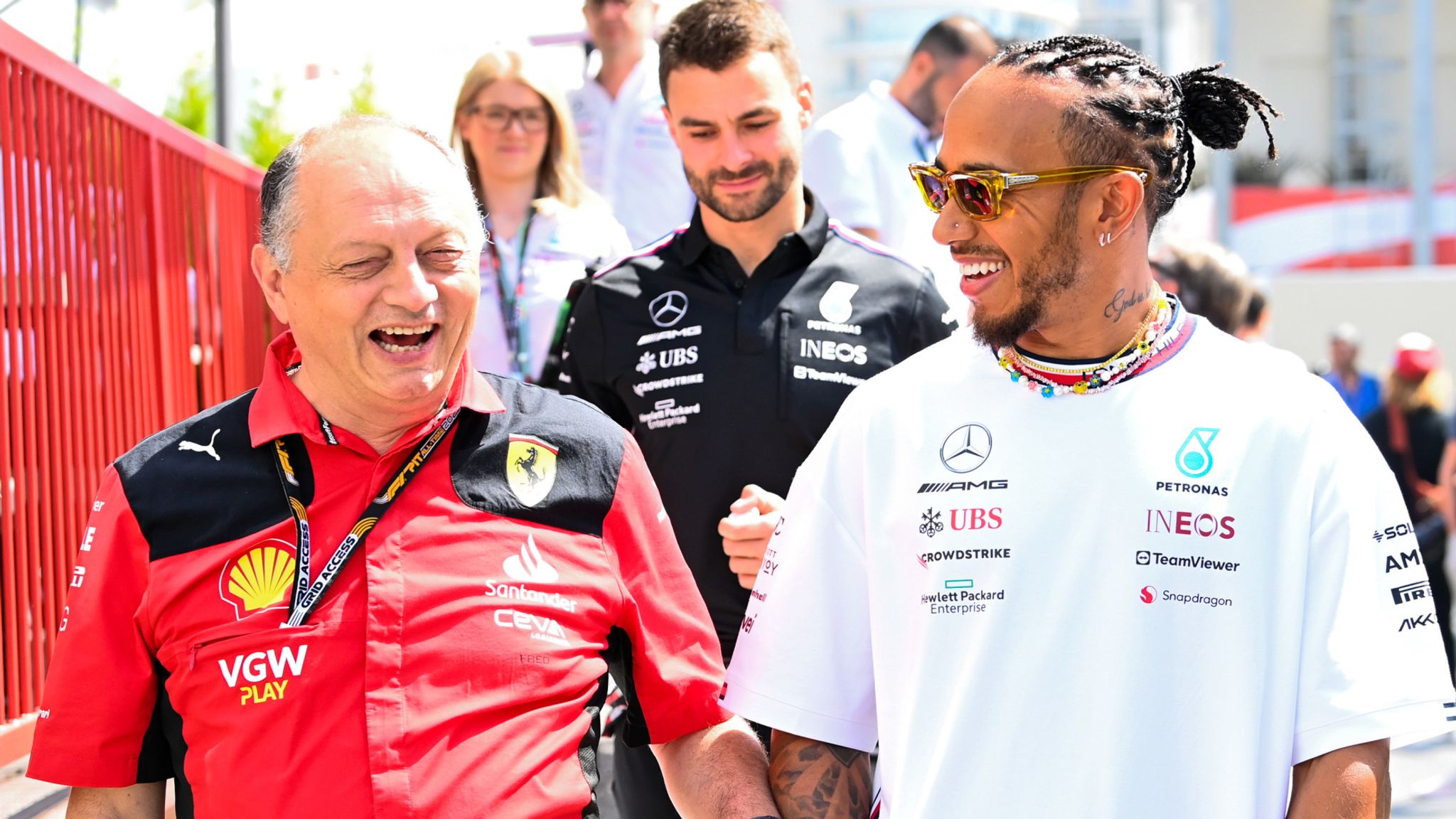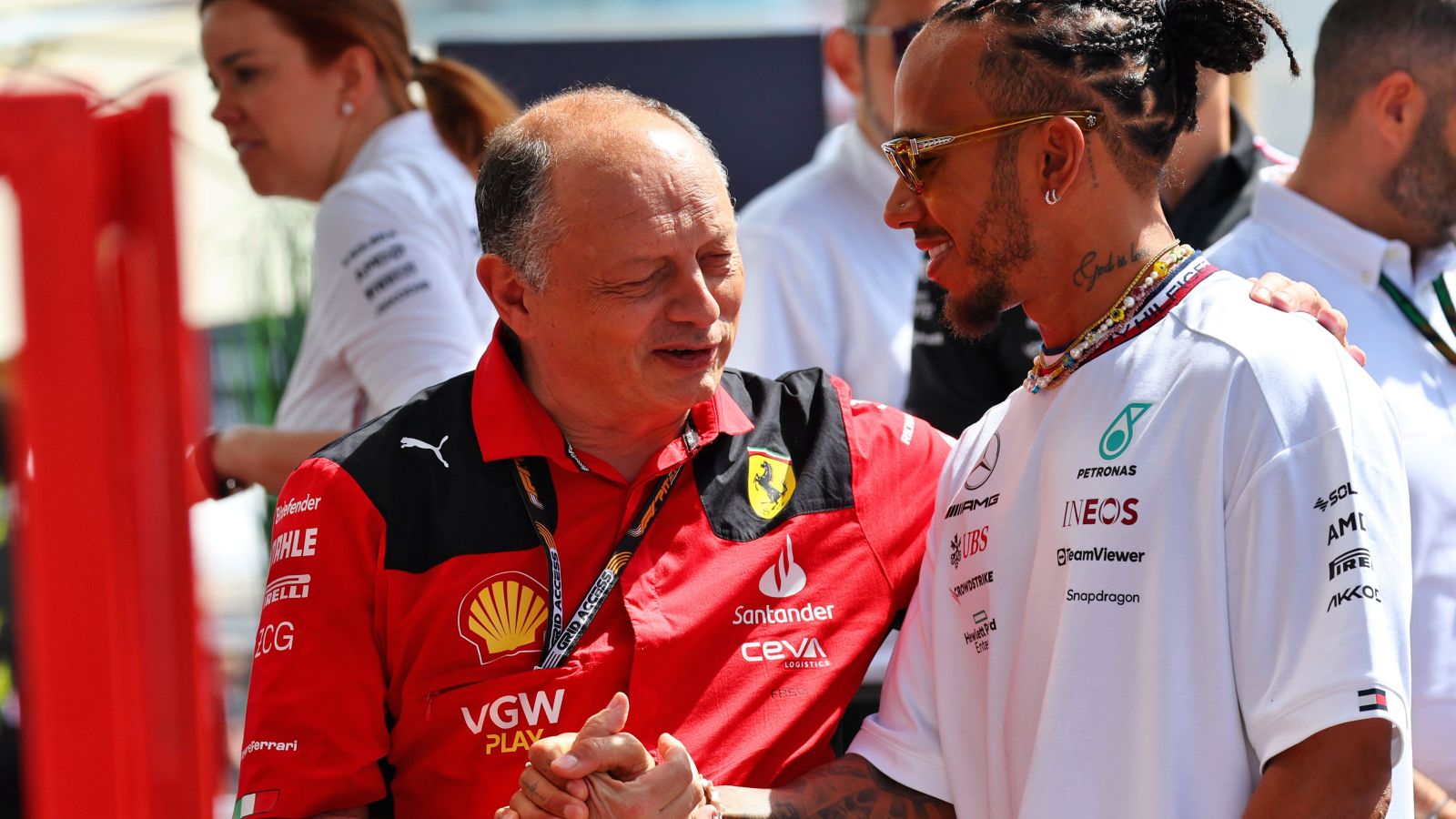Hamilton's Ferrari Fiasco: A Slip-Up With No Mercedes Upgrade?
The world of Formula One racing is known for its high-stakes drama, technical intricacies, and strategic maneuvers. However, in the case of Lewis Hamilton and his Ferrari ride, a seemingly innocuous pit stop debacle turned into a media firestorm, casting a spotlight on the intricacies of F1's technical regulations and the ever-evolving dynamics between rival teams.
The incident occurred during the 2022 Italian Grand Prix, when Hamilton's Ferrari team elected not to make an in-season Mercedes engine upgrade, despite having access to the exact same engine component. This decision, while initially dismissed as a minor tactical blunder, raised eyebrows among F1 insiders and analysts, who couldn't help but wonder if the team had made a fundamental miscalculation. In this article, we'll delve into the specifics of Hamilton's Ferrari fiasco, exploring the technical implications, strategic considerations, and lessons learned from this high-profile misstep.
Understanding F1 Technical Regulations
For those unfamiliar with the intricacies of F1's technical regulations, it's essential to grasp the concept of engine component homologation. In essence, teams are allowed to use identical engine components across a set period, provided they meet specific technical requirements. This homologation process enables teams to optimize their engines, develop new components, and avoid the financial burdens associated with bespoke engine design.
However, there are also restrictions on the use of these components. For instance, teams are prohibited from using certain engine parts in racing trim, while others may be restricted to specific events or configurations. When teams elect not to upgrade their engines, they must carefully weigh the trade-offs between performance, cost, and reliability.
The Case of the Non-Upgraded Engine
During the 2022 Italian Grand Prix, Hamilton's Ferrari team chose not to upgrade their engines, opting instead to stick with their existing specification. While this decision may seem benign at first glance, it sparked intense scrutiny from F1 pundits and analysts. The reasoning behind this decision is multifaceted and complex, but at its core, it appears to be driven by a combination of factors, including:
- Cost considerations: Engine upgrades can be prohibitively expensive, and teams must carefully manage their budgets to avoid financial strain.
- Performance optimization: Teams continually strive to squeeze out every last bit of performance from their engines, often by tweaking minor components or exploiting loopholes in the regulations.
- Strategic thinking: By not upgrading their engines, Ferrari may be attempting to create a power advantage by exploiting the comparative performance of their existing specification versus the upgraded Mercedes engine.
The Mercedes Advantage
Mercedes, as one of the dominant forces in F1, has a reputation for developing highly efficient and powerful engines. Their engine upgrades, in particular, have played a significant role in the team's success, including their 2022 championship triumph. The fact that Ferrari chose not to upgrade their engines piqued the interest of F1 fans and analysts, who wondered if the team had been outmaneuvered by their rivals.
While the Mercedes engine is undoubtedly a formidable force on the grid, it's essential to remember that F1 teams continually adapt and innovate. The success of a team is often determined by a combination of factors, including driver skill, team strategy, and engine performance. The decision not to upgrade their engines may be a calculated risk, designed to create a temporary power advantage or disrupt Mercedes' rhythm.
Lessons Learned
As the F1 paddock continues to evolve, teams must remain vigilant and adapt to changing circumstances. Hamilton's Ferrari fiasco serves as a reminder of the delicate balance between cost, performance, and strategy in F1. While the incident may seem minor in isolation, it highlights the importance of in-season engine upgrades, strategic planning, and effective communication between teams and drivers.
Teams must also navigate the complex web of technical regulations, exploiting loopholes and pushing the boundaries of what is permissible. As F1 continues to evolve, the role of engine component homologation, cost control, and strategic decision-making will become increasingly critical in determining the outcome of Grand Prix.
A New Era for F1 Engine Regulation
In recent years, F1 has introduced various measures aimed at increasing engine efficiency, reducing emissions, and promoting fair competition. The 2026 engine regulations, for example, will feature a significant overhaul of the current power unit specification, with a focus on sustainability, cost reduction, and improved performance.
As teams prepare for the new era of engine regulation, Hamilton's Ferrari fiasco serves as a reminder of the importance of strategic thinking and adaptability. While the incident may have raised eyebrows, it also underscores the need for teams to develop a deeper understanding of the technical regulations and the complex dynamics at play.
The Impact on Ferrari and Hamilton
The repercussions of Hamilton's Ferrari fiasco will likely be felt across the F1 paddock, with both Ferrari and Mercedes facing intense scrutiny from fans, analysts, and sponsors. The incident may also raise questions about the team's future strategy, particularly in light of their decision not to upgrade their engines.
As for Hamilton, the incident may cast a shadow over his reputation, albeit temporarily. However, the seven-time world champion has consistently demonstrated his ability to bounce back from adversity, and his on-track performance will undoubtedly be under intense scrutiny in the coming months.
Conclusion
Hamilton's Ferrari fiasco represents a stark reminder of the intricate complexities and strategic nuances of Formula One. As teams continue to adapt and evolve, the delicate balance between cost, performance, and strategy will remain a critical factor in determining the outcome of Grand Prix. While the incident may seem minor in isolation, it serves as a catalyst for teams to reassess their strategies, optimize their engines, and prepare for the challenges of the 2023 season.
Christian Keyes Father
Alex Landi
Helene Joy Net Worth 2024
Article Recommendations
- Rami Malek And Portiaoubleday
- Chaun Woo Parents Nationality
- Raiders Owner
- Candy Mansoneath
- Mikaylah
- Amariah Morales Fans
- Diddy And Cameroniaz
- Es Nl
- Dominic Monaghan
- Drew Pritchard New Wife



